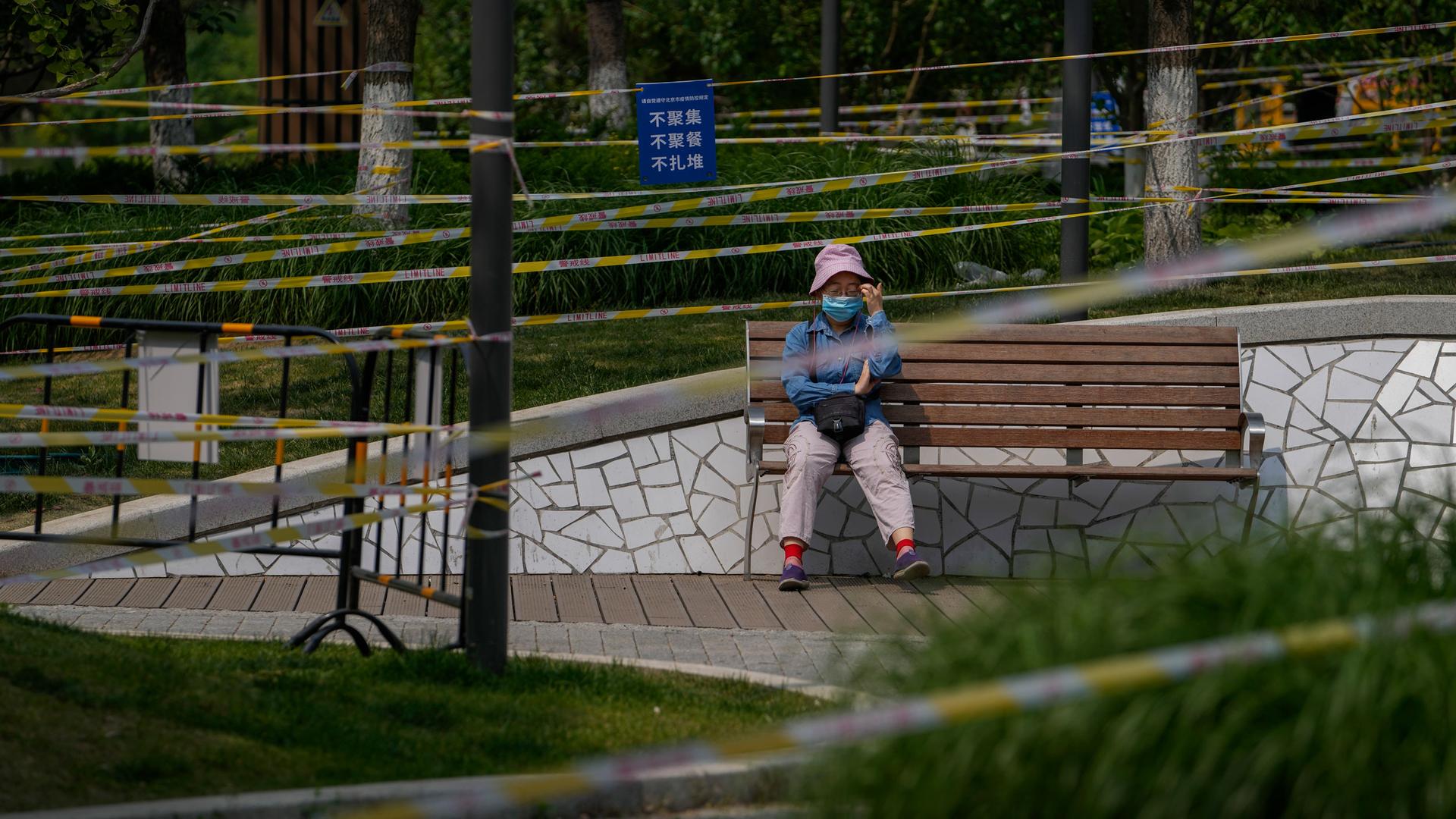Under Shanghai’s strict COVID-19 lockdown over the last two months, Wu Li Kai and his wife, Wang Yili, say they have managed well, overall.
But at 87, and 84, respectively, it hasn’t been easy.
Wu and Wang live on the third floor of an old row house in Shanghai. When Wu had a stroke last year, it became difficult for him to walk the rickety staircase in their building.
Their children and grandchildren have not been able to visit since March. The couple relies on a live-in caretaker to help with daily needs.
“I don’t go out for the daily COVID testing. … Public health workers don’t come up either. I do rapid tests on my own. We’re staying inside, watching TV, listening to music and having coffee and fruit.”
Related: Merchant mariners stranded on ships in Shanghai during COVID lockdown
“I don’t go out for the daily COVID testing,” Wu said. “Public health workers don’t come up either. I do rapid tests on my own. We’re staying inside, watching TV, listening to music and having coffee and fruit.”
China’s elderly population — who are among the most vulnerable to COVID-19 — are not yet fully vaccinated, including Wu and Wang.
The country’s zero-COVID-19 strategy is unsustainable in the face of the omicron variant, according to the World Health Organization. But if China discards the policy, there is concern that the health care system may not be able to support an overload of positive cases.
Less than 40% of Shanghai’s 60-plus population has been fully vaccinated.
Related: Shanghai’s delivery drivers — the unsung heroes of a long pandemic lockdown
“I need to take care of my husband and I was afraid of any side effects.”
“I need to take care of my husband, and I was afraid of any side effects,” said Wang, a retired public health worker.
The local neighborhood committee called Wang to remind her to get the shot but she said they did not insist on it.
Many elderly people fear vaccinations because they have a much higher rate of chronic conditions, said Jia Miao, a sociologist who researches Shanghai’s elderly population.
Miao said that she only managed to convince her mom recently to get vaccinated.
“At the early stage of the mass vaccination, we [had] no idea if it is safe enough for elderly people. … So, at the very beginning, the government only encouraged the young adults to get the vaccination.”
“At the early stage of the mass vaccination, we [had] no idea if it is safe enough for elderly people,” she said. “So, at the very beginning, the government only encouraged the young adults to get the vaccination.”
A lot of older people still think it’s better to avoid getting vaccinated. China doesn’t have a vaccine mandate, but about 88% of the general population is vaccinated.
Related: Pet owners in Shanghai struggle to care for their animals during COVID lockdowns
Professor Jin Dong-yan, a virologist at the University of Hong Kong, thinks the government and physicians and health care workers dropped the ball in protecting the elderly.
“Initially, they felt that as long as they vaccinate the younger generation, then the elderly might already be protected,” he said. “That was their original judgment, and it was wrong. You need to vaccinate the older people to protect them, even if the younger people are all vaccinated. That is the cruel reality.”
Hong Kong’s experience with its fifth COVID-19 outbreak is a good example.
The city has the world’s highest COVID-19 death rate in part, he said, because of the low vaccination rate among its older population. Since then, the vaccination rate has improved, he said.
“The most important lesson is to vaccinate the elderly as early as possible and give them booster shots as needed.”
“The most important lesson is to vaccinate the elderly as early as possible and give them booster shots as needed,” he said.
But across China, mass testing is the real focus these days, with much less talk about vaccinations.
A research team from the US and China said that the country risks more than 1.5 million deaths from COVID-19 if it discards the zero-COVID policy without safeguards in place.
Wang is worried, she admitted, but she said she remains cautious.
“I’m listening to government directives, staying home and testing regularly,” she said. “I thoroughly disinfect all the packages that come into our home. After the lockdown is over, we will just have to be extra careful.”
Wang and Wug have been through tough times before — they survived the Japanese military bombing Shanghai during World War II and harsh persecution during the Cultural Revolution.
For them, the pandemic is just one more challenge to face.
